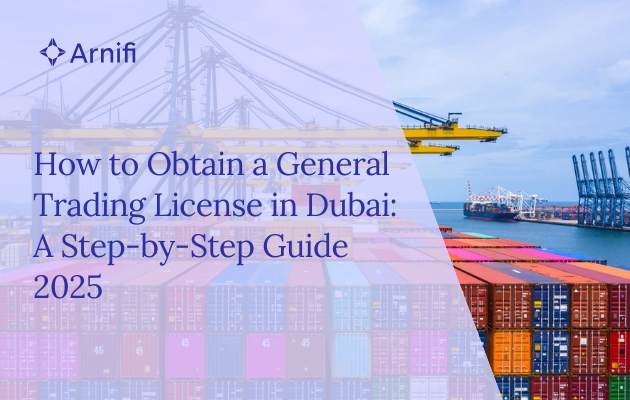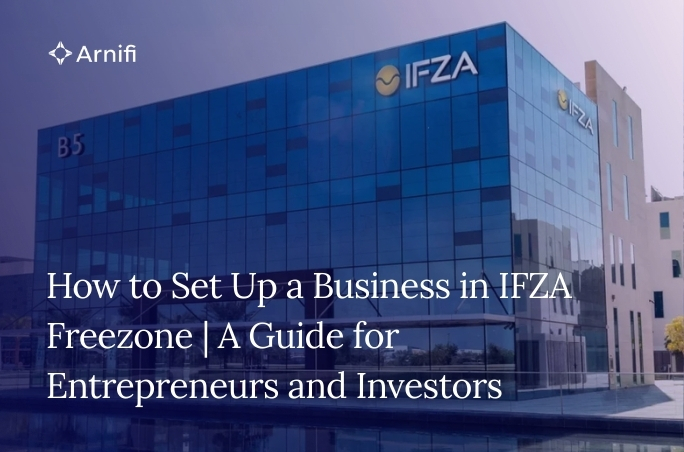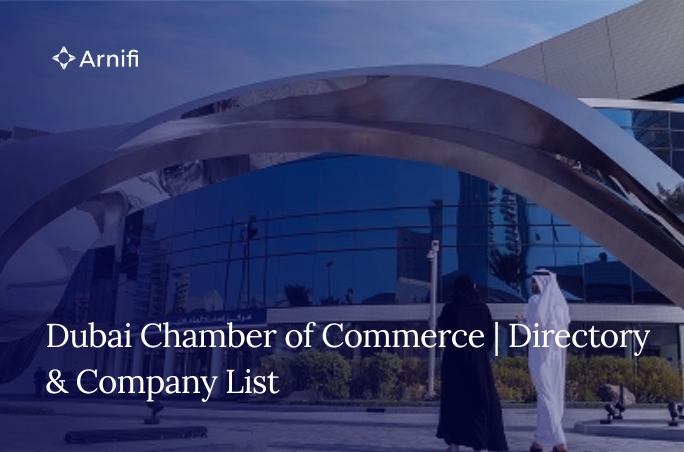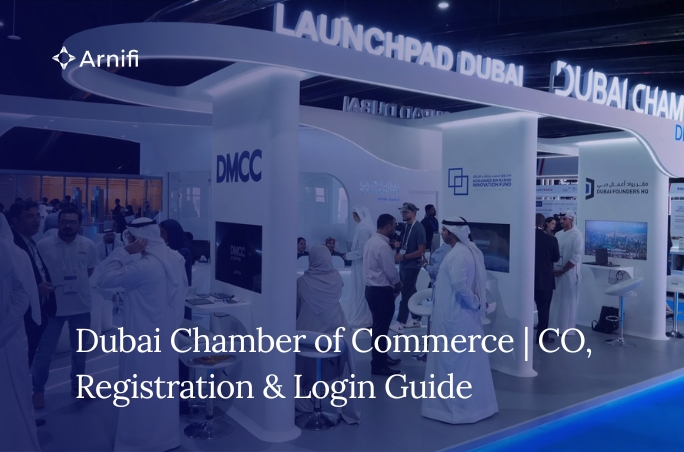How to Obtain a General Trading License in Dubai: A Step-by-Step Guide 2025
by Shethana Jun 05, 2025  8 MIN READ
8 MIN READ

Due to its conducive environment for business, strategic location, and thriving economy, Dubai has attracted many entrepreneurs from around the world.
A very popular kind of business license in the emirate is the general trading license.
The flexibility that it offers is suited for businesses involved in various kinds of goods-from electronics and fashion to food and furniture.
Recently, especially foreign investors have seen demand for General Trading Licenses in Dubai increasing, as they seek to enter both local and international markets.
Setting up is actually easier and faster than most people think if done with expert assistance.
This article will outline everything you need to know, what is covered by a general trading license, its advantages, types of jurisdictions (mainland vs. free zone), documents required, exact setup procedure, costs, and staying compliant thereafter.
Table of contents
- What is a General Trading License?
- Benefits of a General Trading License in Dubai
- Mainland vs. Free Zone: Where to Get Licensed
- Eligibility & Requirements
- Step-by-Step Process to Obtain a General Trading License
- Costs of Obtaining a General Trading License
- Post-License Steps
- Compliance & Renewal
- Common Mistakes to Avoid
- Consulting a Business Setup Expert
- Conclusion
What is a General Trading License?
A General Trading License in Dubai is a business license that allows companies to import, export, and trade in a wide variety of unrelated goods.
Unlike a commercial license, which typically covers a narrow scope, a general trading license is more comprehensive.
For example, with a general trading license, a business can deal in electronics, food products, home appliances, cosmetics, clothing, and more, all under one roof.
This is especially useful for e-commerce companies, wholesalers, and retail brands that don’t want the headache of applying for multiple licenses.
The key difference between a commercial license and a general trading license lies in the range of permissible activities.
While a commercial license might be limited to one or two product categories, a general trading license covers broader, unrelated items, making it a go-to option for diversified businesses.
Benefits of a General Trading License in Dubai
As discussed, a trade license is an essential permit that is required to run a business. There are several advantages to securing a General Trading License in Dubai like –
1. Trade Multiple Product Categories
You aren’t confined to similar products. One day you could be importing electronics; the next, exporting packaged food.
2. Access to Local and Global Markets
A general trading license enables you to do business not only in the UAE but also internationally. This flexibility is key for supply chain businesses and re-exporters.
3. 100% Foreign Ownership
Both mainland and freezone company owners can enjoy full ownership. The only difference is having a local partner on the mainland.
4. Scalability
Another major objective is that the general trading license provides operational freedom, i.e., warehouse, hire more staff, and more.
5. Tax Incentives
Dubai offers the best tax policies suitable to expand and grow the company, i.e., 0% corporate tax until the company generate revenue of 375,000 AED. On the other hand, there are no customs duties on re-exports.
Mainland vs. Free Zone: Where to Get Licensed
Choosing the right jurisdiction is one of the first and most crucial decisions when applying for a General Trading License in Dubai.
Mainland License (DED)
The license is issued by the Dubai Department of Economic Development (DED), is the company’s setup is in the mainland. Mainland licenses allow you to trade anywhere in the UAE without restriction.
However, foreign investors are generally required to appoint a local service agent. While this agent does not hold equity, they will represent your business in front of the UAE authorities.
Mainland licenses are ideal for companies that want to open retail outlets, trade freely within the UAE, or bid for government contracts.
Free Zone License
Dubai is home to more than 30 free zones, each catering to different industries. Popular choices for trading businesses include IFZA, DMCC, and SPC Free Zone.
The major advantage of going the free zone route is that you get 100% foreign ownership. Additionally, setup is faster and often cheaper. However, you can only trade within the free zone or export internationally unless you appoint a local distributor to sell within the mainland.
Eligibility & Requirements
To qualify for a General Trading License in Dubai, you can register your business as an LLC, sole proprietorship, or a branch of a foreign company.
Key documents required include:
- Passport copies of all shareholders
- Business plan outlining trading activities
- Trade name reservation certificate
- Initial approval certificate
- Completed application form
Some free zones require fewer documents, especially if you’re choosing a flexi-desk or virtual office option. Naming your business also has its own set of rules—no offensive terms, no reference to religious or political groups, and the name must be available for registration.
Step-by-Step Process to Obtain a General Trading License
Step 1: Choose Jurisdiction and Business Activity
Start by deciding whether you’ll operate in the mainland or a free zone. Then, select the specific trading activities your business will cover—these must align with the approved list under the general trading license.
Step 2: Reserve a Trade Name
Your trade name must follow UAE naming conventions and shouldn’t duplicate existing names. You can check and reserve your preferred name through DED’s online portal or your chosen free zone’s website.
Step 3: Apply for Initial Approval
This initial clearance confirms that the government has no objection to your business setup. It’s a basic green light to move on to the next steps.
Step 4: Prepare Legal Documents
Prepare and notarise your Memorandum of Association (MOA), lease agreement, and completed application form. In some cases, additional corporate documents or board resolutions may be needed.
Step 5: Lease Office Space
You’ll need a physical address for your business. Free zones often offer affordable desk or office packages. If you’re registering in the mainland, you must register your office with Ejari.
Step 6: Final Submission and Payment
Submit all compiled documents to the respective authority—DED for mainland, or the chosen free zone authority. Once approved, make the payment for the license fee, and you’ll receive your official general trading license.
Costs of Obtaining a General Trading License
The cost of a General Trading License in Dubai varies based on jurisdiction and business size. On average:
- License Fees: AED 12,000 to AED 25,000+
- Office Space: AED 10,000 to AED 20,000 (for flexi-desk or small office)
- Additional Costs: Visa fees, establishment card, and government approvals
Mainland setups usually cost more due to Ejari requirements and the need for a local service agent.
Post-License Steps
Once you have your license:
- Apply for an establishment card from the immigration department
- Open a corporate bank account
- Apply for investor and employee visas as needed
- Register for VAT if your turnover exceeds the mandatory threshold
Compliance & Renewal
Your General Trading License in Dubai must be renewed annually. This process involves:
- Paying the renewal fee
- Updating any expired documents
- In some cases, submitting an audit report (depending on the free zone)
- Mainland businesses will also need to renew their Ejari annually
Common Mistakes to Avoid
- Picking the wrong jurisdiction for your business model.
- Assuming you can trade certain goods that aren’t allowed under a general license
- Failing to list all intended trading activities upfront
- Underestimating startup and operational costs
Consulting a Business Setup Expert
If it’s your first time setting up in the UAE, getting professional assistance can save you time and money. Consultants can help you:
- Choose the right jurisdiction
- Ensure compliance with UAE law
- Handle paperwork and approvals efficiently
- Most reputable agencies offer end-to-end support, including visa processing and bank account opening
Also Read:
- How to Get a Gold Trading License in Dubai, UAE 20…
- How to Get a Forex Trading License in Dubai
- How to Get Municipal Approval for a Trade License …
- How to Cancel a Trade License in Dubai?
- How to Get a Trade License in Dubai, UAE in 2025?
- How Much is the Cost of a General Trading License in Dubai?
- How to Verify a Trade License in Dubai?
- How to Download Trade License in Dubai, UAE?
- IFZA General Trading License Cost 2025
- Business License for Fitness Trainer in Dubai | Complete Setup Guide 2025
- How Long Does It Take to Get a Business License in Dubai?
Conclusion
A General Trading License in Dubai offers unmatched flexibility, access to global markets, and the ability to scale your business with ease. But success begins with the right setup.
Take time to evaluate your goals, choose the correct jurisdiction, and make sure all your trading activities are covered from the start. Doing things the right way from day one can set the stage for long-term business growth in one of the world’s most dynamic commercial hubs.
Top UAE Packages

Related Articles
Top UAE Packages



